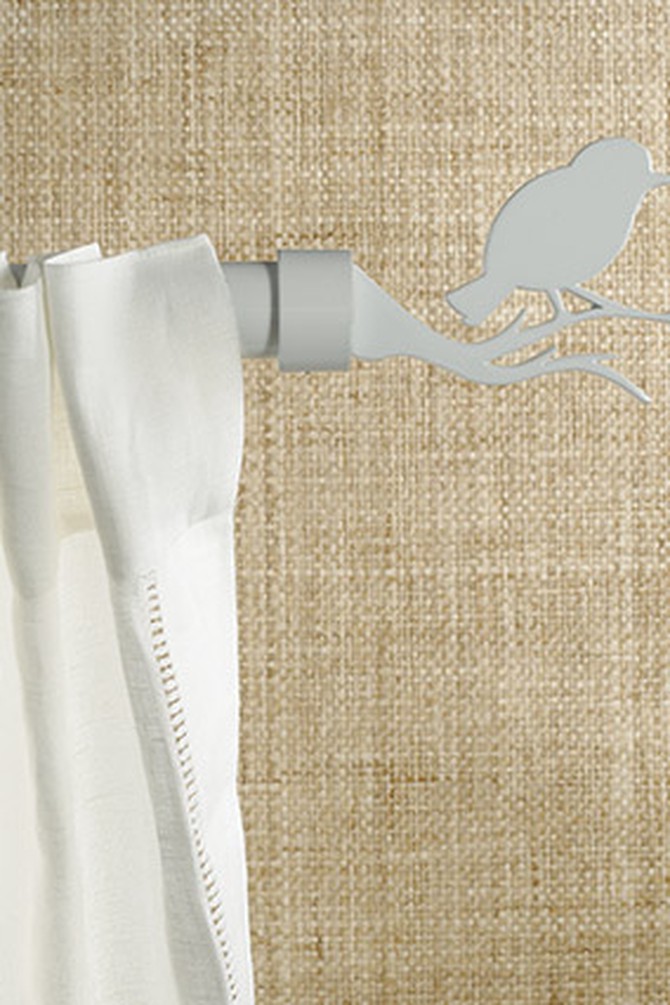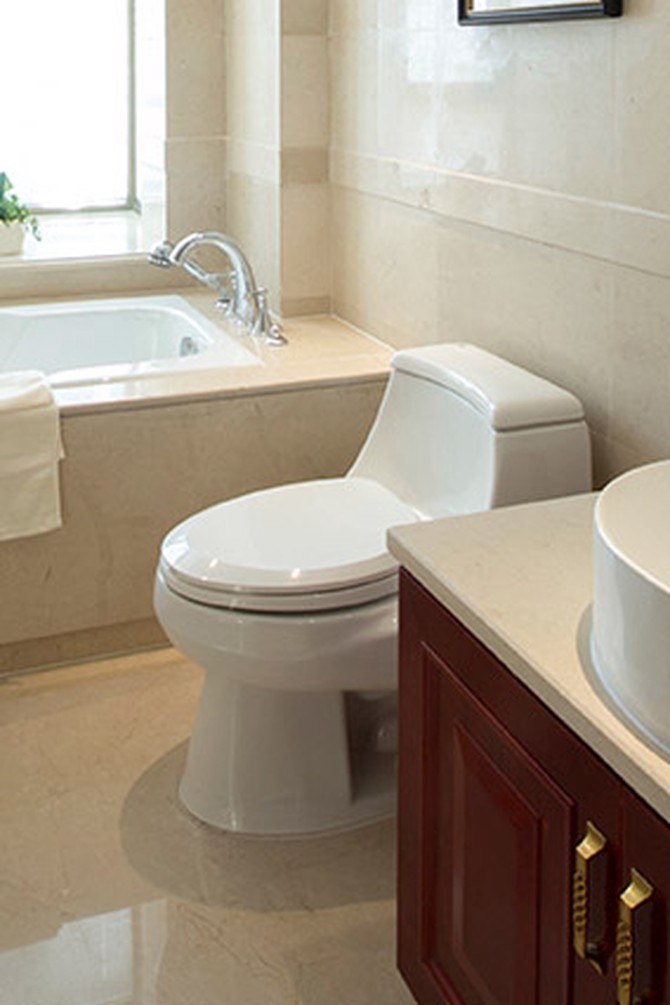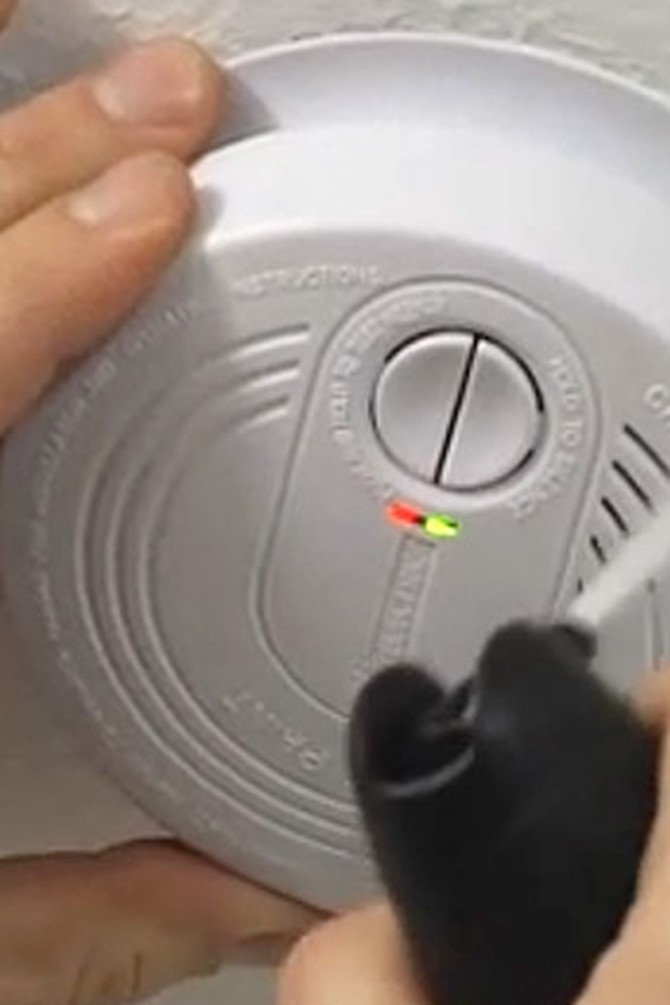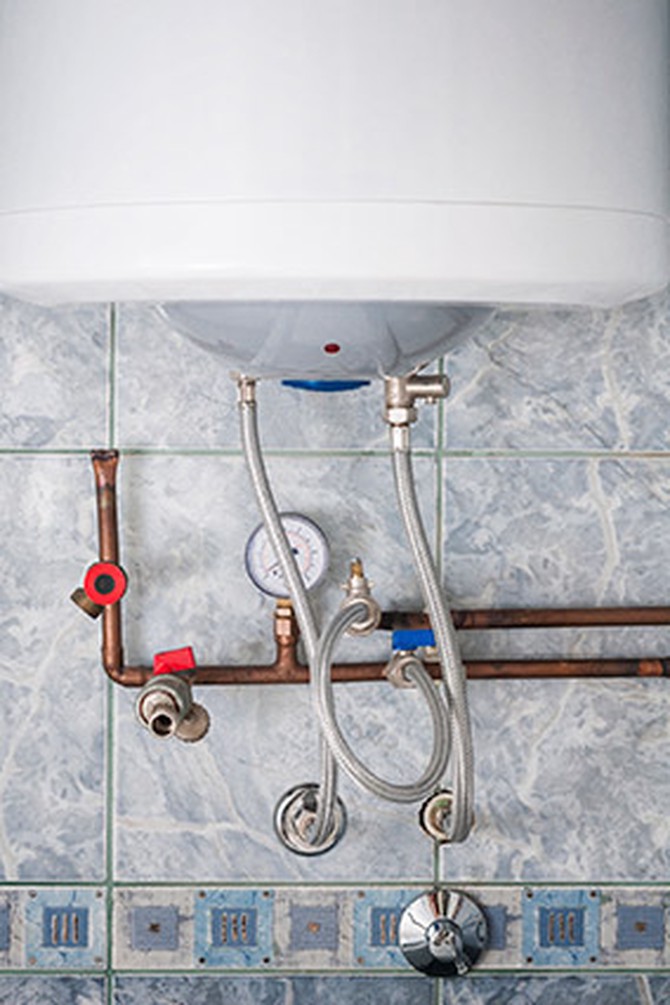5 Little Fixes That Save You Hundreds of Dollars
No complicated equipment or handyman skills necessary: These simple solutions can help you avoid bigger problems—and professionals' fees—down the road.
By Candace Braun Davison

Photo: Thinkstock
Straighten Out a Slouchy Curtain Rod
When carpenter Thad Mills visits people's houses on Home Made Simple, he starts his work with the curtain rods, many of which are sloped, sagging or about one exasperated sigh away from falling off the wall. Stucco or plaster walls are usually to blame, which crumble when you try to screw in the rod, resulting in a less-than-sturdy hold, Mills says. Try pre-drilling the holes using a smaller drill bit than the screw you want to use. This allows you to twist the screw into the wall without tearing it up. Also, if you rehang the rod an inch or two higher, your ceilings will look taller and the curtains can hide the original holes.

Photo: Thinkstock
Stop Flushing Money Down the Drain
Many toilets—particularly older ones—flush more water than they need to, Mills says, but that doesn't mean you need to invest in a new, low-flow porcelain model just yet. Take the lid off your tank and look for the bobber (it typically looks like a rubber balloon on a stick). It determines how much water is used to fill the toilet after each flush, and it can be adjusted up or down using a screwdriver, he explains. "If you lower the bobber, it will use less water," Mills says. "It's a matter of testing—try flushing a piece of toilet paper. If it doesn't clear, move the bobber up a bit." Tweak until you find the right level.

Photo: Thinkstock
Fill in the Gap
Grime hides in your baseboards, often sifting down—and piling up in—that little gap between the board and wall. Try acrylic painter's caulk to close up the opening, Mills says. Use your finger to push it in, creating a smooth line. Once it's dry, paint it to match the baseboards. No one will notice it's there, but it will save you serious clean-up time over the years, he says.

Photo: Thinkstock
Silence Any False Alarms
If you can't find a cause for your chirping fire alarm—the oven's not even on, and the batteries are new—it's time to whip out the canned air. Yes, that spray bottle you use to clear crumbs off your keyboard. Use it to blast a little air around the perimeter of the alarm, Mills says. Dust can get stuck in the vents, triggering the alert.

Photo: Thinkstock
Put Your Water Heater on an Annual Detox
What's worse than touching your water heater? Shelling out the cash to buy a new one. The best way to extend its life is to drain out its H20 once a year, Mills says. First, turn off the water heater, then look for the spigot at the bottom of the machine. Hook it up to a hose and run the hose outside (preferably to a storm drain, since pumping 100 gallons into your backyard could flood the area). Open up the valve, and give it about half an hour to drain out all the water. This clears out sediment trapped in the bottom of the tank, which can corrode over time. Mills says the best time to do this is at the start of summer, after the water heater's been running all winter. A calendar alert on the Summer Solstice (June 21) can help you remember.
Get more of Mills's tips every Saturday at 9 a.m. ET/8 a.m. CT on OWN.
Next: 5 ways you're wasting money trying to save time
Get more of Mills's tips every Saturday at 9 a.m. ET/8 a.m. CT on OWN.
Next: 5 ways you're wasting money trying to save time
Published 02/26/2014

